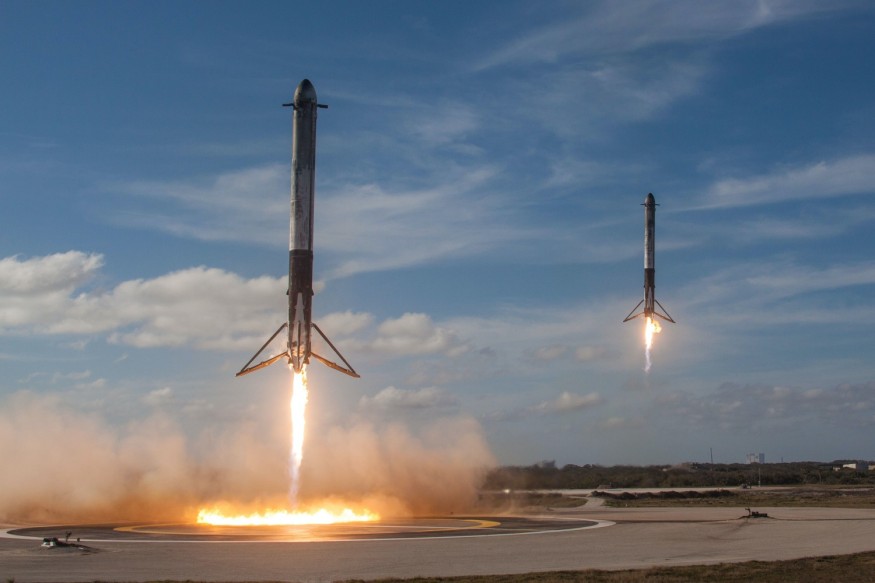China complained over two near-collisions involving SpaceX Starlink satellites and its Tiangong space station, beginning a barrage of criticism of Elon Musk's internet service provider.
The reported occurrences involved a tiny satellite of roughly 2,000 launched by SpaceX's Starlink Internet Services subsidiary, The New York Post said. The service beams internet down to Earthbound consumers in distant places where regular internet service providers are unavailable.

Satellites, Space Debris in the Orbit
According to Forbes, this isn't the first time space debris and satellites in orbit have been addressed.
Due to the hazards posed by space debris, NASA abruptly postponed a scheduled spacewalk in late November.
Musk responded to NASA's decision by tweeting: "We had to adjust certain SpaceX satellites orbits to lessen the likelihood of a collision."
We had to shift some Starlink satellite orbits to reduce probability of collision. Not great, but not terrible either.
— Elon Musk (@elonmusk) November 30, 2021
Station & Dragon have micrometeorite shields (ultra high velocity impact absorption), but EVA suits do not, hence higher risk for spacewalk.
The South African-born billionaire stated that the US space agency's choice isn't ideal, but it's also not disastrous.
In addition, SpaceX has launched over 1,900 satellites to serve its Starlink internet network, with more on the way.
In addition to the space debris, NPR reported that in 2007, China blew up a satellite in a far higher orbit, shattering it into over 35,000 pieces and scattering it across the whole low Earth orbit, ranging from 200 kilometers 3,850 kilometers in height.
Meanwhile, because space debris poses a concern, scientists have requested nations to share data to reduce the risk of catastrophic space collisions. Around 30,000 satellites and other trash are thought to be orbiting the Earth.
ALSO READ : SpaceX's Falcon 9 Rocket Launches for the 11th Time, Sending Over 50 Satellites to Space
SpaceX Satellites Almost Hit Chinese Space Station
On July 1 and October 21, satellites from Starlink Internet Services conducted two "near encounters" with the Chinese Space Station, according to a declaration filed by China to the United Nations' space agency earlier this month.
"The China Space Station (CSS) deployed preemptive collision avoidance control for safety reasons," China indicated in a document released on the UN Office for Outer Space Affairs' website.
These claims, however, have not been independently verified. SpaceX did not reply to the statement, according to CNBC.
CNBC said one user on Weibo, China's Twitter-like microblogging network, said they are "just a pile of space junk" in response to Chinese people's social media posts criticizing Elon Musk's SpaceX satellites.
Meanwhile, they've been dubbed "American space warfare weapons" by another Weibo user.
In contrast, China desires to propose that the Secretary-General of the United Nations communicate the aforementioned facts to all States Parties to the Outer Space Treaty and draw their attention to Article VI of the Treaty, as part of the statement published.
"States Parties to the Treaty shall bear international responsibility for national activities in outer space, including the moon and other celestial bodies, whether conducted by governmental agencies or non-governmental entities and for ensuring that such activities are conducted in accordance with the provisions of the present Treaty," Article VI of the Treaty.
For those unfamiliar with the Chinese space station, construction began in April with the launch of Tianhe, the largest of the three modules. The station is expected to be completed by 2022 after four crewed visits.
RELATED ARTICLE : OneWeb Adds 36 Satellites to Orbit For Better Internet and Communication; New Batch of Megaconstellation Launched Aboard Arianespace Soyuz
Check out more news and information on Space in Science Times.












